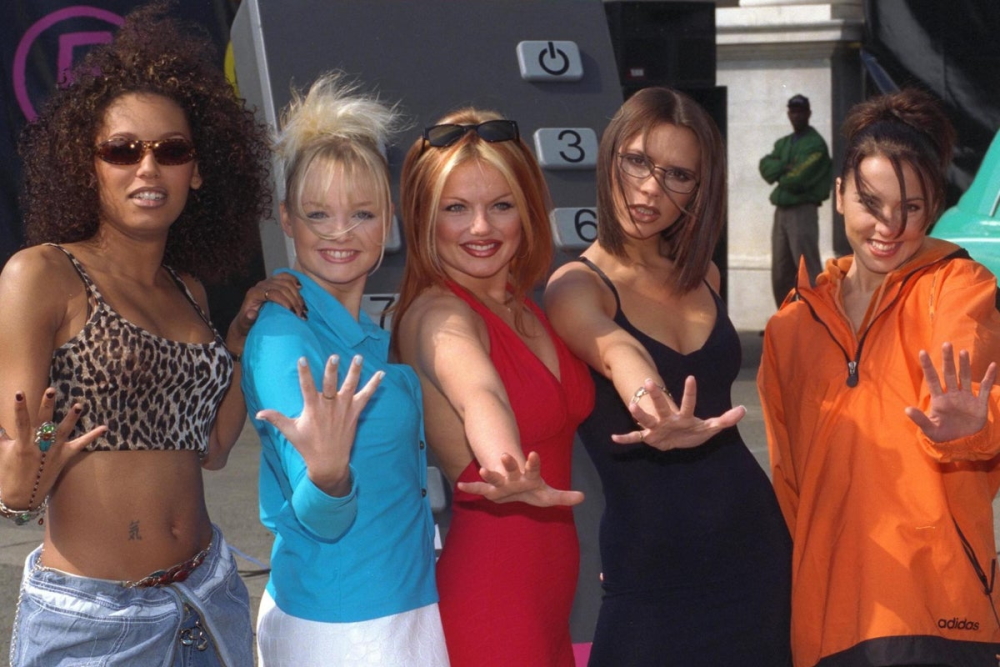Article
Will GB News spice up British broadcasting?

The date is 30 March 1997 and the time is 6pm – The Spice Girls jump onto the small screen to launch ‘Five’, the fifth terrestrial TV channel in the UK. Singing a song written exclusively to introduce the new broadcaster (IMHO not a patch on Spice Up Your Life), Posh and friends hand over to Tim Vine and Julia Bradbury. The duo use the first half hour to introduce the type of programming we’ll see on the new channel.
The primary focus isn’t placed on the channel’s new soap (who remembers Family Affairs?), it isn’t placed on the upcoming broadcast of a free to view England football match (something that never happened at the time), it wasn’t even placed on the advent of Xena: Warrior Princess to UK screens (where is she now?).
Instead, above all else, within a minute of the channel going live, it’s how FIVE would reinvent news coverage that took centre stage. A young Kirsty Young stated, “what’s different about FIVE News is that we have addressed a lot of the problems that many news programmes haven’t been facing up to – that principally, a lot of people under 50 are just not watching the news….they obviously feel that news isn’t catering to them and we are hoping to address this by making the news something that lives every night, that breaths.”
Fast forward to 2021, the British TV viewing public awaits the arrival of another new channel, nearly 25 years later, also aiming to change the face of UK broadcast news coverage – GB News.
It too has ambitions to shake up the status quo as to how news is broadcast and consumed by Brits on TV. Where in the 90s, FIVE wanted to cater to an unchartered age bracket – GB News’ chair Andrew Neil is also looking to attract the attention of neglected audience groups. Where he claims that the UK’s current broadcast news media “all come from various shades of left”, Neil claims that GB News “will be based more like MSNBC in America, which is on the left, and Fox [News], which is on the right.” He has added that GB News will “champion robust, balanced debate and a range of perspectives on the issues that affect everyone in the UK, not just those living in the London area”, addressing a perceived gap in the market for “the vast number of British people who feel underserved and unheard by their media.”
And where FIVE’s introduction of “news on the hour, every hour” was perhaps some kind of pre-cursor to the proliferation of rolling TV news coverage we are accustomed to today – two decades later, GB News launches to actively regress from rolling news. In looking to mirror aforementioned US broadcasters, Neil comments “They don’t do rolling news. They do news when it breaks, but they don’t do continuous rolling news. They segment the day into individual programmes, news-based programmes, built around very strong presenters, or anchors as they call them in the United States, and that is what we will do too.”
But what both channels stated in their plans is to rejuvenate and re-energise UK TV news – breathing excitement into broadcasts. On launch, FIVE stated that “news is exciting, its new, its true, its different, its dynamic, its always changing – if its presented in an exciting way, it will be accessible to more people.” In adopting a similar ethos, GB News will use its star-studded cast of presenters to sit at the heart of its schedule – beyond just Andrew Neil, the channel will feature Colin Brazier, Kirsty Gallacher, Simon McCoy, Dan Wootton and Alastair Stewart amongst its star-studded cast to attract audiences. Rumours continue to grow that Piers Morgan is the next to join. This is all part of how Neil believes GB News will bring about change – he says that GB News will have “Anchors with a bit of edge, a bit of attitude, bit of personality – and people will make an appointment to view them. That’s the plan.”
I’m sat watching the Beeb’s coverage of Duke of Edinburgh’s passing today as I write this. One can’t help but feel that Auntie’s coverage is, at the very least, repetitive – with the same cyclic B-roll alongside recurring commentary from Nicholas Witchell. When considered alongside Andrew Neil’s vision for what news coverage could look like instead, does what we’re watching today serve to question if UK TV is indeed ripe for another revolution as to how significant news items are covered on British television?
Even though its unlikely many would consider FIVE as eventually holding a ground-breaking role in the history of TV news, the channel in its infancy certainly had a credible ambition and vision – they wanted to “offer something you wouldn’t find elsewhere in British television”. There’s palpable hype in the British media that GB News is setting out to achieve something similar. Whether this transpires, remains to be seen.





